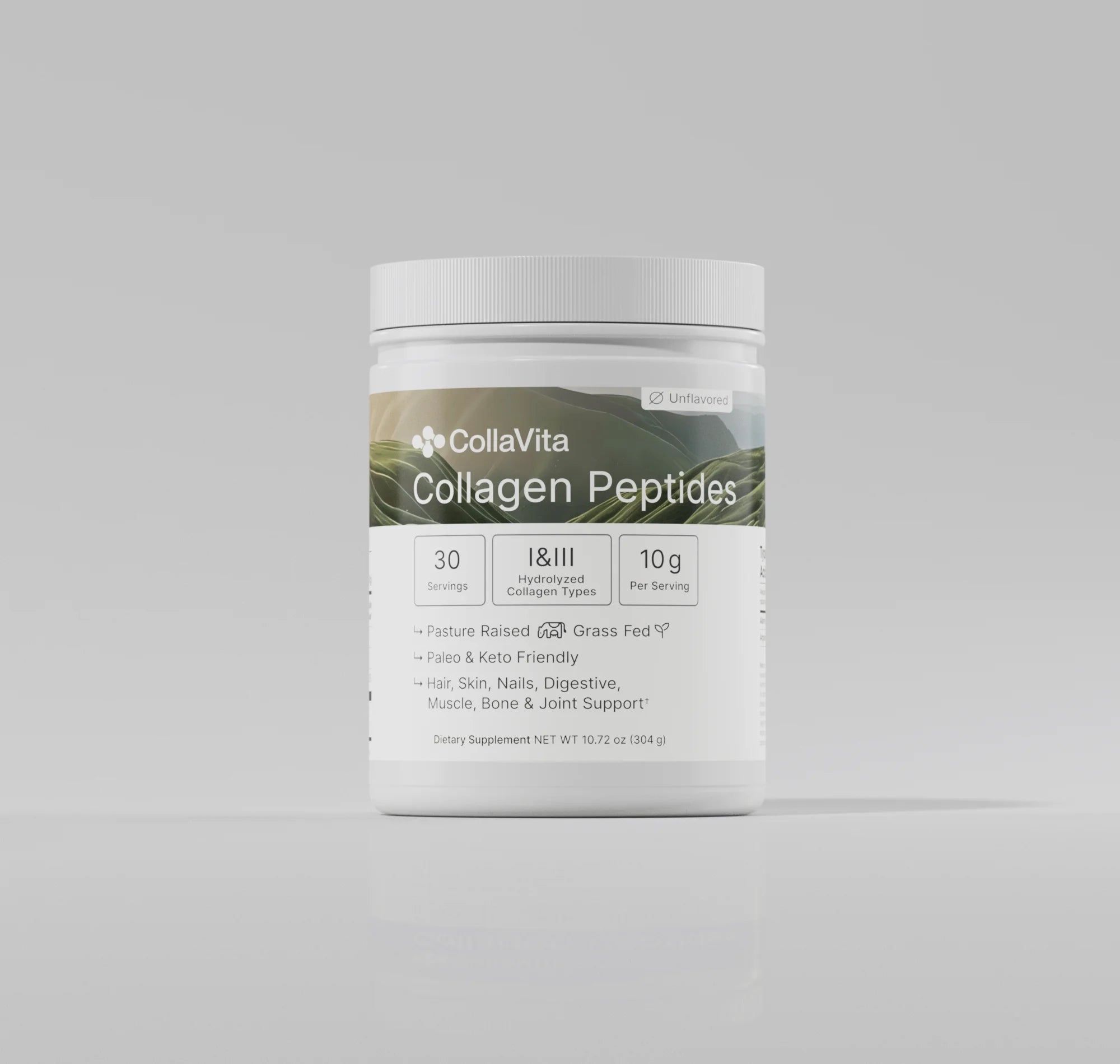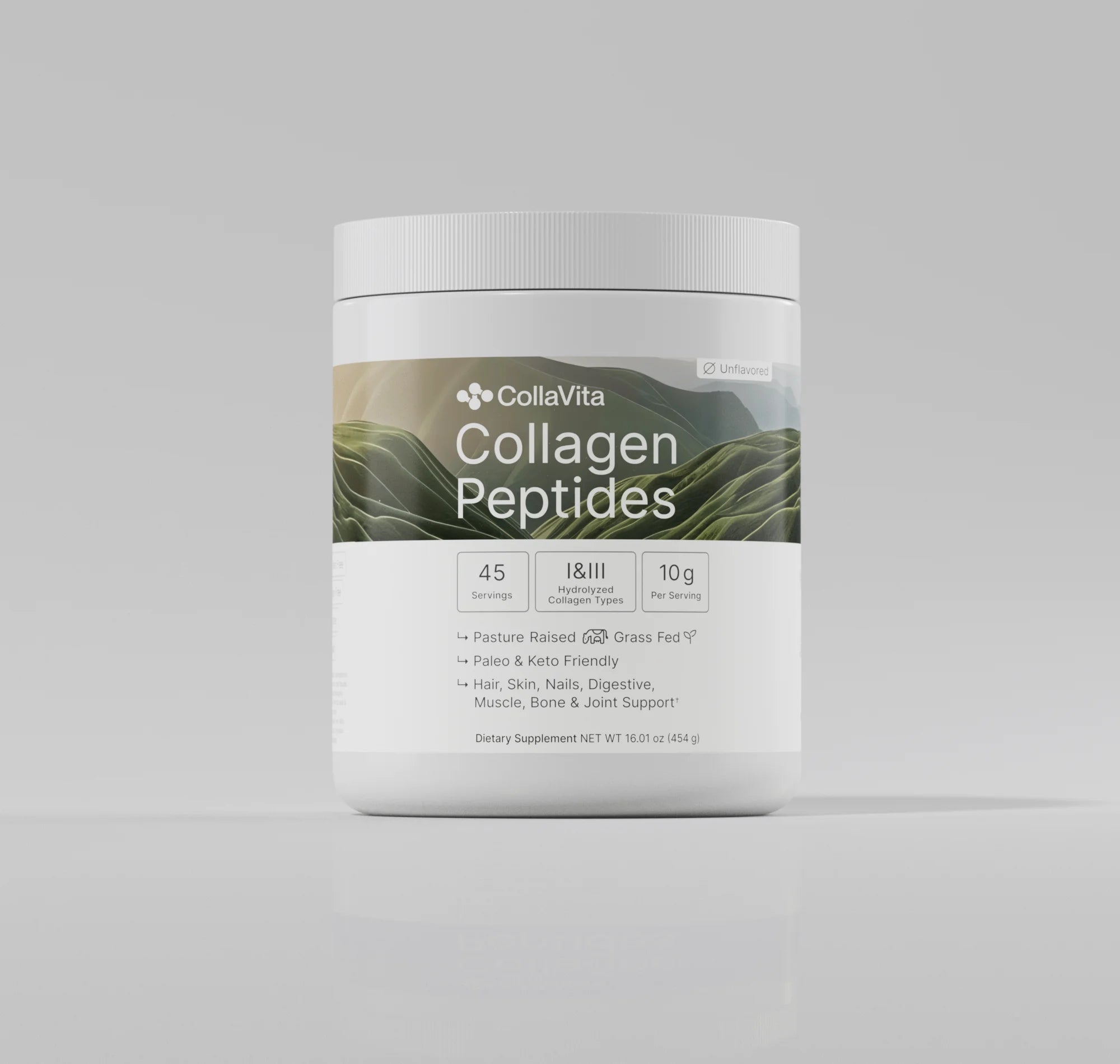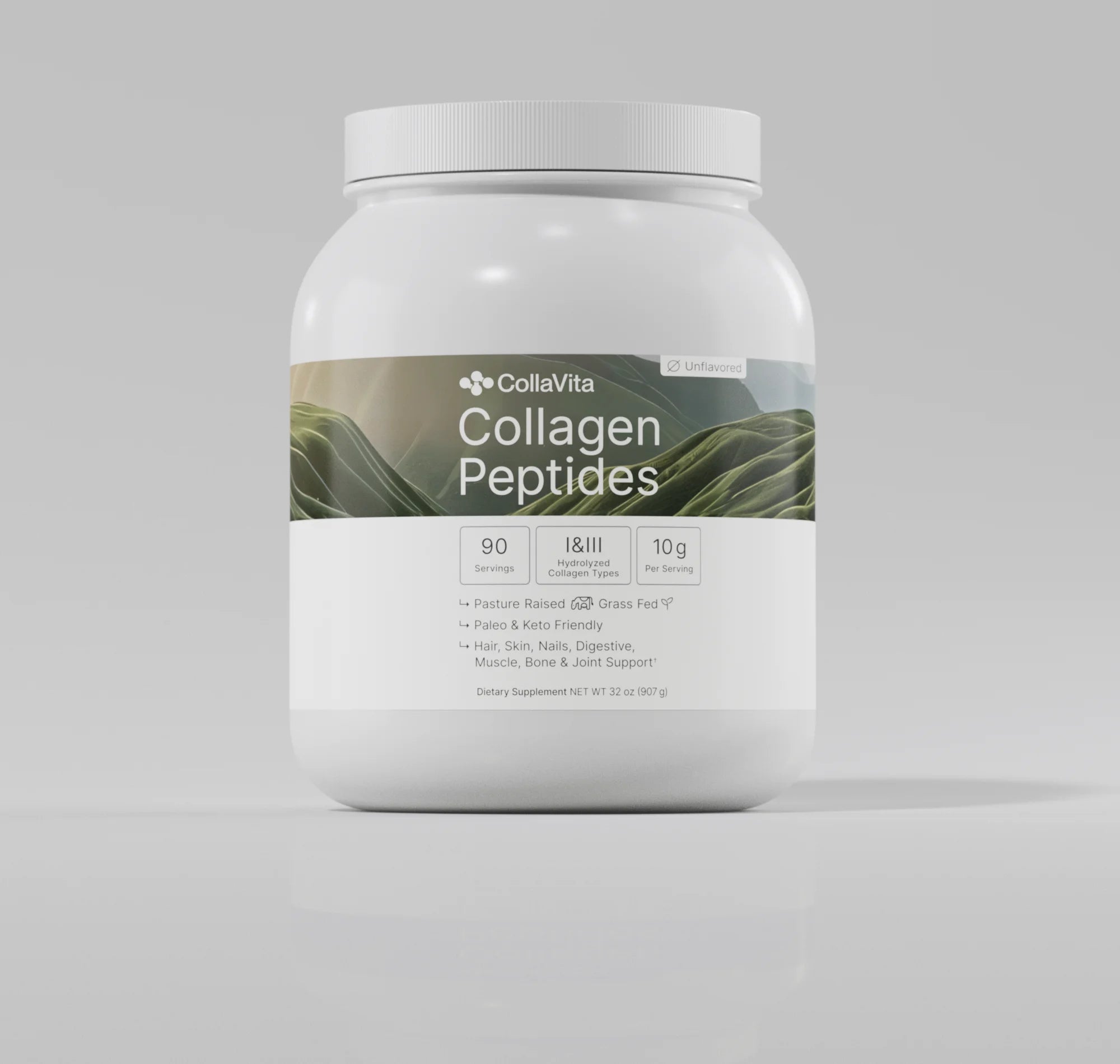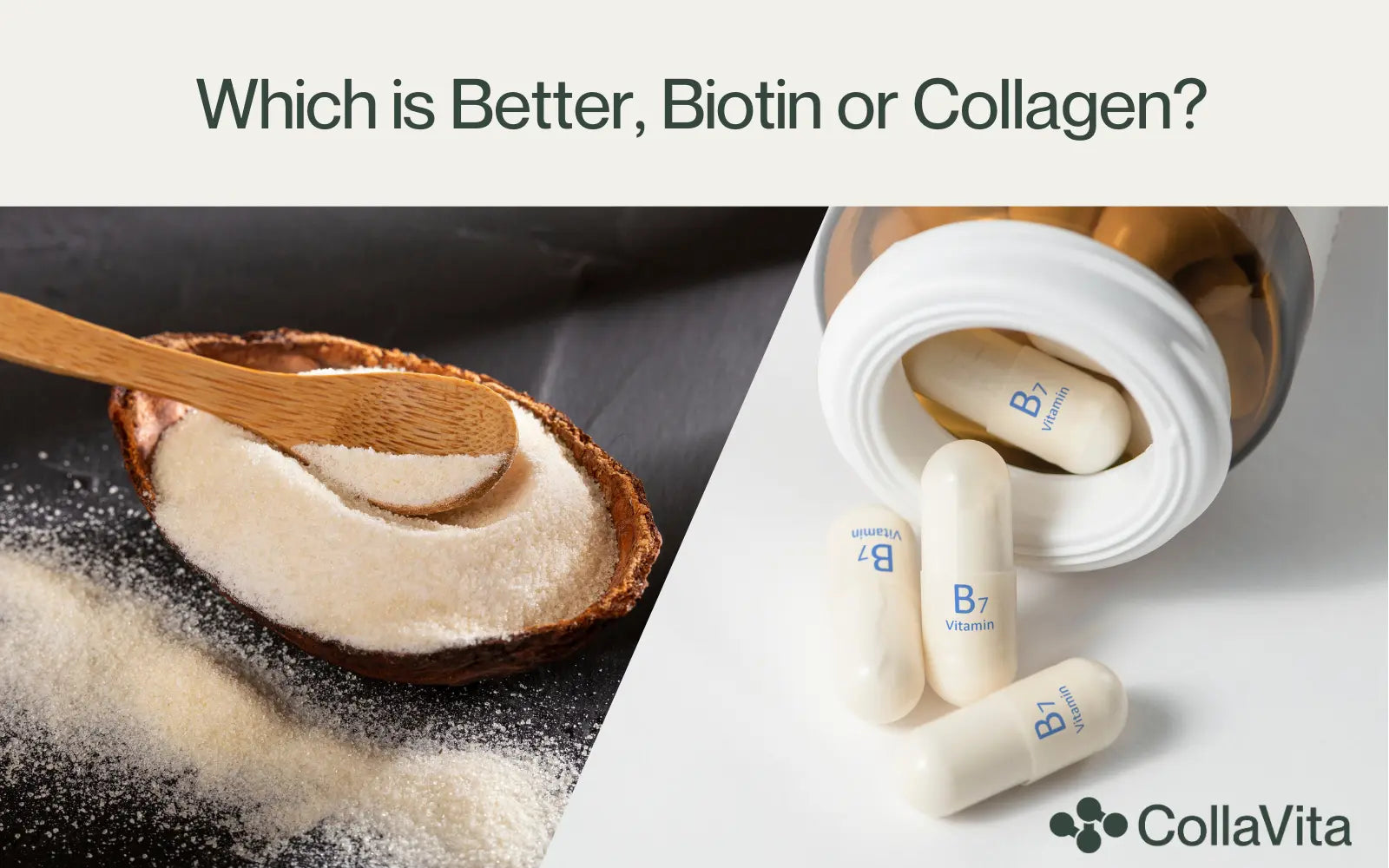How Does Vitamin C Support Collagen Production?
Vitamin C is an indispensable cofactor for collagen synthesis. Collagen has a complex protein structure formed by three helices intertwined with each other. The cross-links between these helices provide collagen with its strength and elasticity. Without Vitamin C, these cross-links cannot form properly. In the absence of adequate Vitamin C, collagen fibers cannot bind correctly, leading to a fragile and rupture-prone structure. This can manifest as symptoms such as gum bleeding, easy bruising, and delayed wound healing.
Vitamin C is also a potent antioxidant. It combats free radicals in the body, preventing damage to collagen fibers. This protective effect maintains the integrity of the collagen structure and delays the onset of aging signs. Vitamin C plays a dual role in collagen development: it both enhances synthesis and protects against oxidative stress. In this way, it actively contributes to the preservation and production of healthy collagen.
Some research indicates that Vitamin C alone does not directly reduce inflammation (e.g., IL-6 secretion). However, a study titled “Anti-Inflammatory and Antioxidant Properties of a New Mixture of Vitamin C, Collagen Peptides, Resveratrol, and Astaxanthin in Tenocytes: Molecular Basis for Future Applications in Tendinopathies.”(1) reported that the combination of Vitamin C, collagen peptides, resveratrol, and astaxanthin showed a synergistic effect in reducing pro-inflammatory markers such as IL-6 and MMP-2. These markers play a significant role in collagen degradation. These findings suggest that Vitamin C, when used in conjunction with other compounds, can indirectly support collagen health by suppressing inflammatory processes.
Why Should You Use Collagen with Vitamin C?
Vitamin C supports the enzymes necessary for collagen production, facilitating the formation and binding of collagen fibers, thereby making them stronger and more stable. Additionally, Vitamin C helps collagen be better absorbed by the body. Therefore, to maximize the benefits of collagen supplements, it is recommended to take them with Vitamin C.
According to a 16 weeks study conducted by Slovenian researchers on 87 women aged 40-65, supplements containing collagen and vitamin C, with or without hyaluronic acid, significantly improved skin dermis density and reduced wrinkle severity and skin roughness. While slight improvements in hydration and elasticity were observed, these were not statistically significant compared to placebo. No added benefit was found from including hyaluronic acid. The study was published in Nutrients under the title “The Effects of Dietary Supplementation with Collagen and Vitamin C and Their Combination with Hyaluronic Acid on Skin Density, Texture and Other Parameters: A Randomised, Double-Blind, Placebo-Controlled Trial.”(2)
How to Choose the Best Collagen with Vitamin C Supplement?
When choosing a supplement, it is important to prefer hydrolyzed collagen products. Hydrolyzed collagen is broken down into smaller peptides, making it more easily absorbed by the body. A quality supplement typically contains 90–1500 mg of Vitamin C.
Products containing additional nutrients like copper and hyaluronic acid can also be considered. Choose reputable brands, avoid artificial additives, and ensure the supplement's form (powder, capsule, liquid) is practical for you. The daily dosage generally ranges between 5000 and 10,000 mg of collagen and 500 mg of Vitamin C, but it can be adjusted according to individual needs.
When and How Should You Take Collagen with Vitamin C?
To maximize the effects of collagen supplements, taking them with Vitamin C is the most appropriate method, as Vitamin C is essential for collagen formation. The health of your skin, joints, and tissues depends on your body's ability to produce collagen and effectively heal wounds; recent research has shown that adequate Vitamin C intake is critical for these processes.
Vitamin C helps the body produce collagen, and once produced, it makes collagen stronger and more useful. For most people, supplementing with Vitamin C or consuming a diet rich in citrus fruits, berries, and green vegetables will be sufficient to meet the daily recommended intake of 95 milligrams.
To get the most out of collagen, taking it with Vitamin C first thing in the morning or with food will increase absorption. Regardless of the form of your collagen supplement (powder, liquid, or capsules), taking it with a Vitamin C source will maximize its effectiveness in supporting your body's natural collagen production. See our guide on how to take collagen peptides for optimal results.
Are There Any Side Effects of Collagen with Vitamin C Supplements?
Frequently Asked Questions
How Much Vitamin C Should I Take With Collagen?
The optimal Vitamin C dose varies according to individual requirements, the specific ingredients of the supplement, and the person's current health status. In most cases, 500 milligrams of Vitamin C daily may be sufficient. However, in situations such as supporting the immune system or accelerating wound healing, higher doses like 5-20 grams may be necessary. Excessive Vitamin C intake should be handled carefully, and potential side effects (such as gas, bloating, diarrhea, etc.) should be considered.
Can Everyone Take Collagen and Vitamin C Supplements?
Generally, collagen is safe and beneficial for most people. However, in the following situations, it is best to consult your doctor before taking supplements:
- Pregnant or Breastfeeding Women: Women should always consult their doctor before taking any supplements during pregnancy or breastfeeding. Pregnant or Breastfeeding Women should refer to this article: Can You Take Collagen While Pregnant?.
- Individuals with Chronic Diseases: Especially those with kidney stones or other chronic conditions should consult their doctor before taking supplements.
- Allergy Sufferers: If you are allergic to any ingredient in the supplement, you should avoid these supplements.
- Medication Users: It is important to consult your doctor, as some medications may interact with collagen or Vitamin C supplements. For example, individuals taking statins can take Vitamin C supplements, but the necessity of statins should be discussed with their doctor.
How Long Should I Take Collagen and Vitamin C Supplements?
The duration of Vitamin C and collagen supplement use can also vary according to individual needs. Vitamin C can be beneficial, especially in winter or during illness. Vitamin C supplements taken during periods of high stress or after a long day at work can help the body cope with stress and maintain a strong immune system. A daily dose of 5 grams of Vitamin C is recommended.
Collagen supplements are an excellent choice for counteracting the signs of aging and promoting healthy skin, hair, nails, and joints. Results typically begin to show within a few weeks.
Do Collagen Supplements Cause Weight Gain?
Collagen supplements generally do not cause weight gain. In fact, collagen for weight loss has been explored in some studies. Collagen is a type of protein, and proteins are the body's basic building blocks. Collagen supplements can even aid in weight loss by providing a feeling of satiety. However, some collagen supplements may contain sugar or artificial sweeteners. Therefore, when choosing a supplement, it is important to check the ingredients and avoid supplements containing sugar. Additionally, other ingredients in supplements (e.g., thickeners or fillers) may cause digestive problems such as bloating or gas in some individuals.
Do Collagen and Vitamin C Supplements Interact With Other Supplements?
Collagen and Vitamin C supplements are generally safe, but they can interact with other supplements. For instance, zinc supplements can lower copper levels, which are important for both copper and collagen production, so it's essential to monitor copper levels when taking zinc. Individuals on iron supplements should also check for copper deficiency, as it may affect anemia. Vitamin B and C can be taken together, as Vitamin C aids folate metabolism, crucial for serotonin production. Vitamin C may be more effective when taken with bioflavonoids, and liposomal Vitamin C is better absorbed, though it is usually made from corn derivatives, which may be an issue for some people. For those with stomach sensitivity, non-acidic buffered Vitamin C is preferable.
Conclusion
Collagen and Vitamin C form an ideal duo for enhancing skin health, reducing signs of aging, and strengthening joint health. Vitamin C supports proper collagen formation, thereby increasing skin elasticity and delaying the signs of aging. This nutrient combination contributes to better skin and joint health by improving the absorption of collagen supplements. Carefully adhering to recommended dosages is vital, as this blend of nutrients supports both internal and external health. In the process of healthy aging, Vitamin C and collagen supplements can be highly beneficial.
SOURCES
(1) - Marzagalli, Monica, Battaglia, Stefania, Raimondi, Michela, Fontana, Fabrizio, Cozzi, Marco, Ranieri, Francesca R., Sacchi, Roberto, Curti, Valeria, Limonta, Patrizia, Anti-Inflammatory and Antioxidant Properties of a New Mixture of Vitamin C, Collagen Peptides, Resveratrol, and Astaxanthin in Tenocytes: Molecular Basis for Future Applications in Tendinopathies, Mediators of Inflammation, 2024, 5273198, 17 pages, 2024.
(2) - Žmitek K, Žmitek J, Hristov H, Rogl Butina M, Keršmanc P, Pogačnik T. The Effects of Dietary Supplementation with Collagen and Vitamin C and Their Combination with Hyaluronic Acid on Skin Density, Texture and Other Parameters: A Randomised, Double-Blind, Placebo-Controlled Trial. Nutrients. 2024 Jun 17;16(12):1908. doi: 10.3390/nu16121908. PMID: 38931263; PMCID: PMC11206740.
Scientifically Reviwed by Omer (Matt) Sermet














